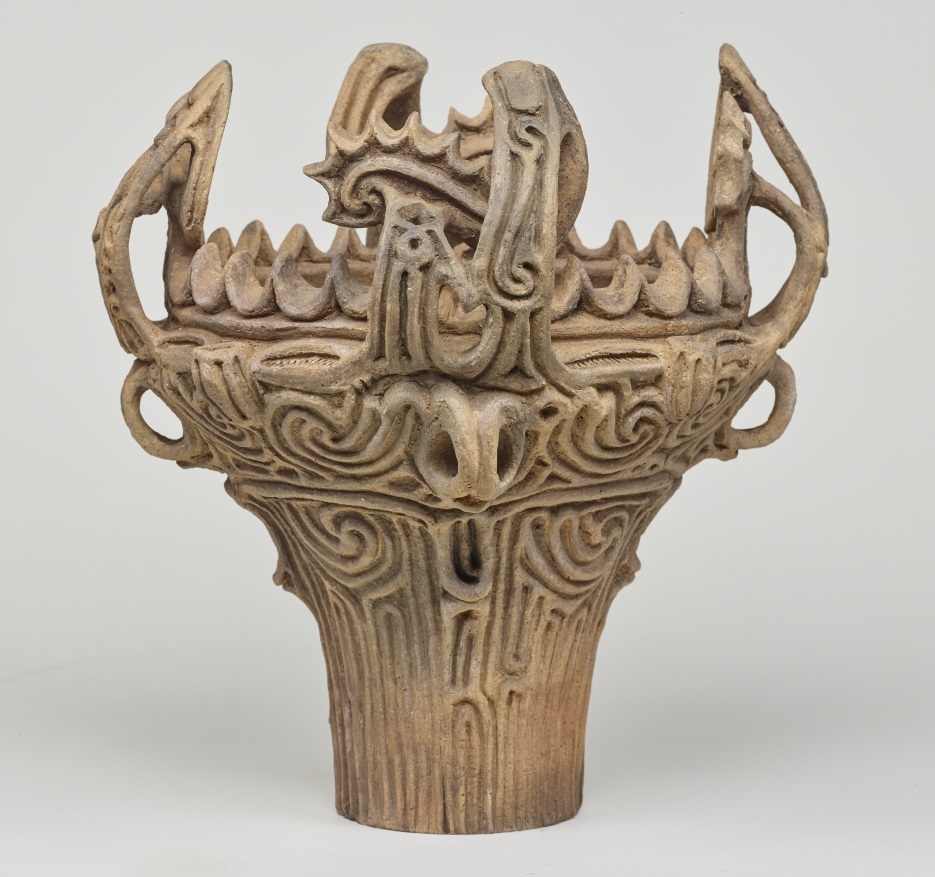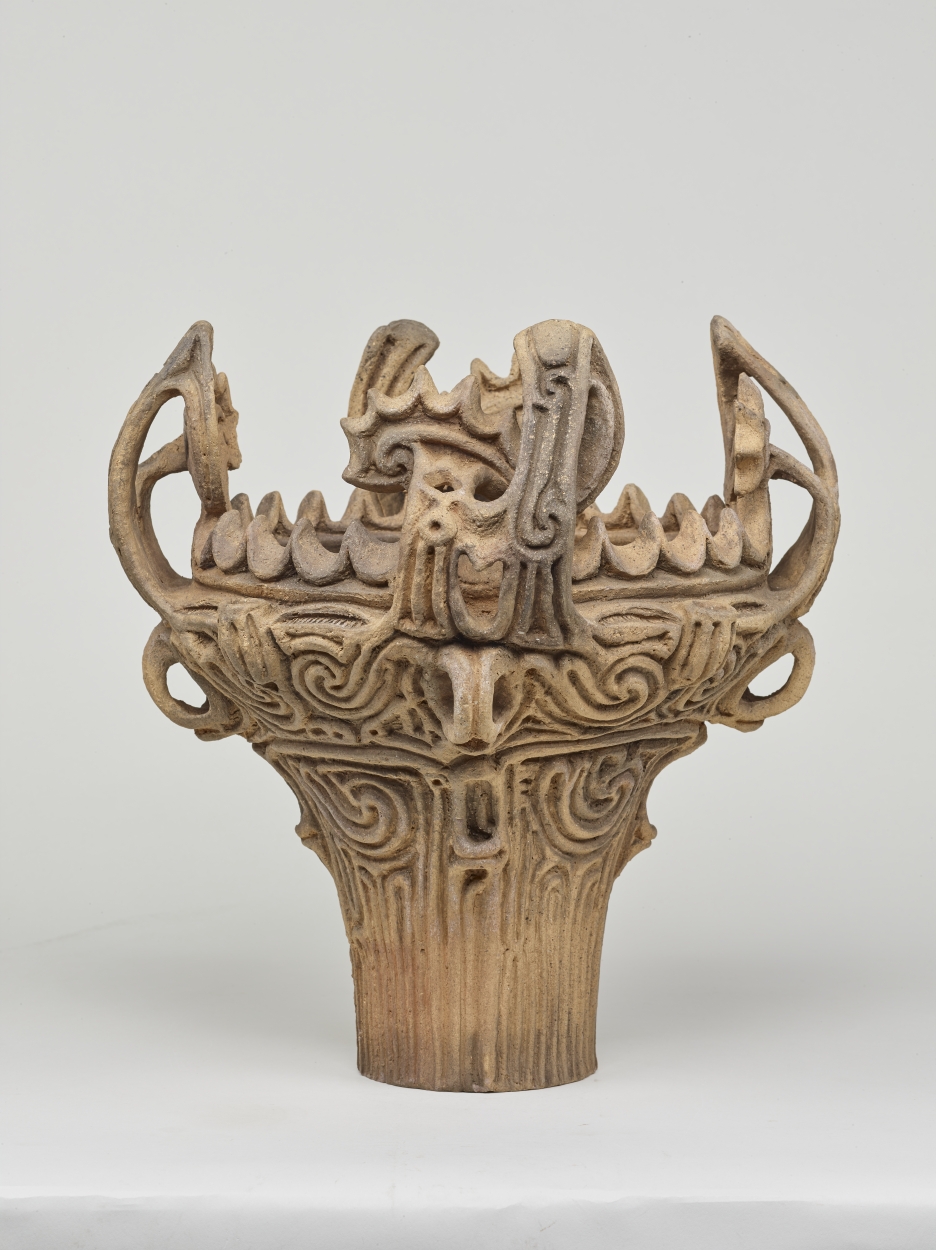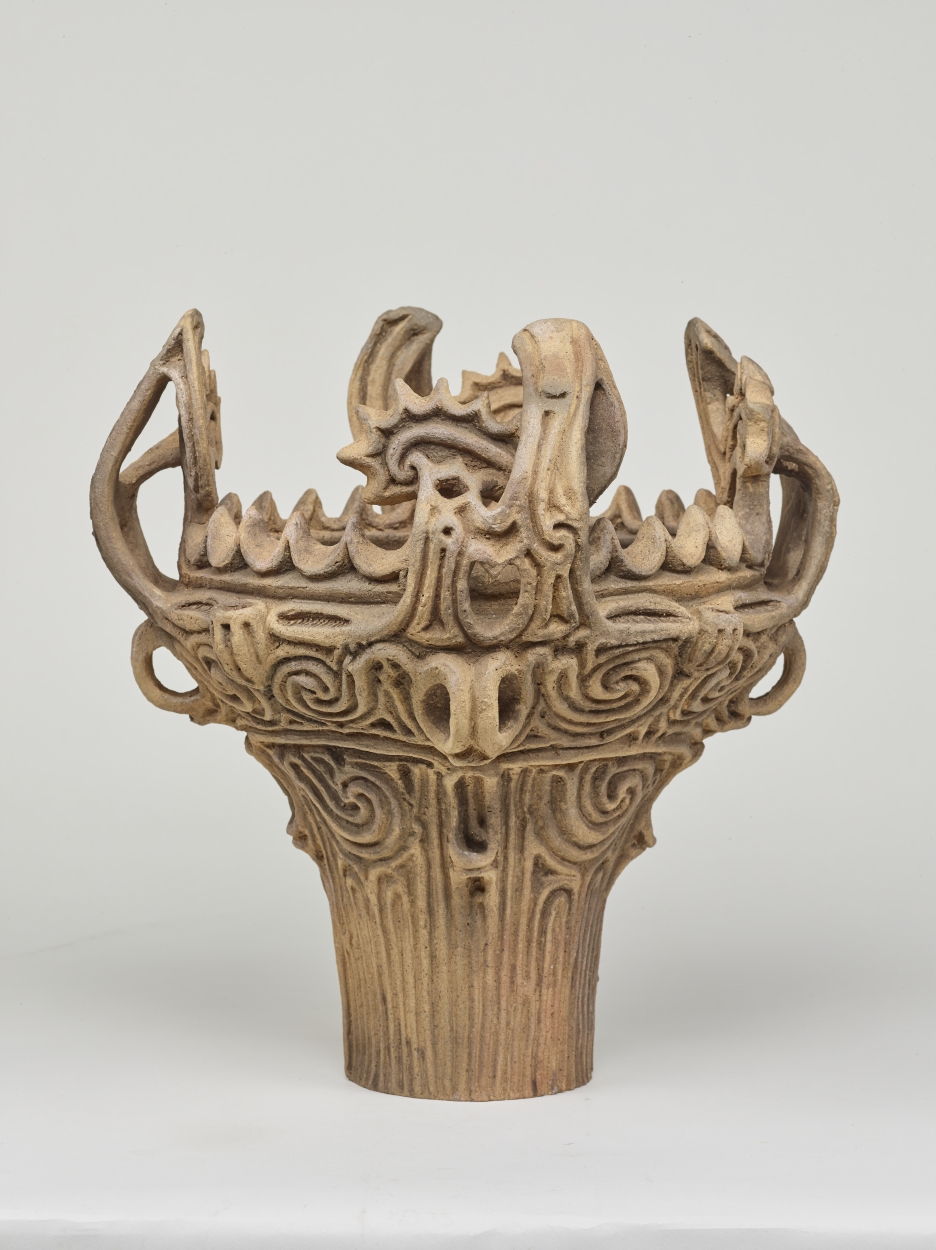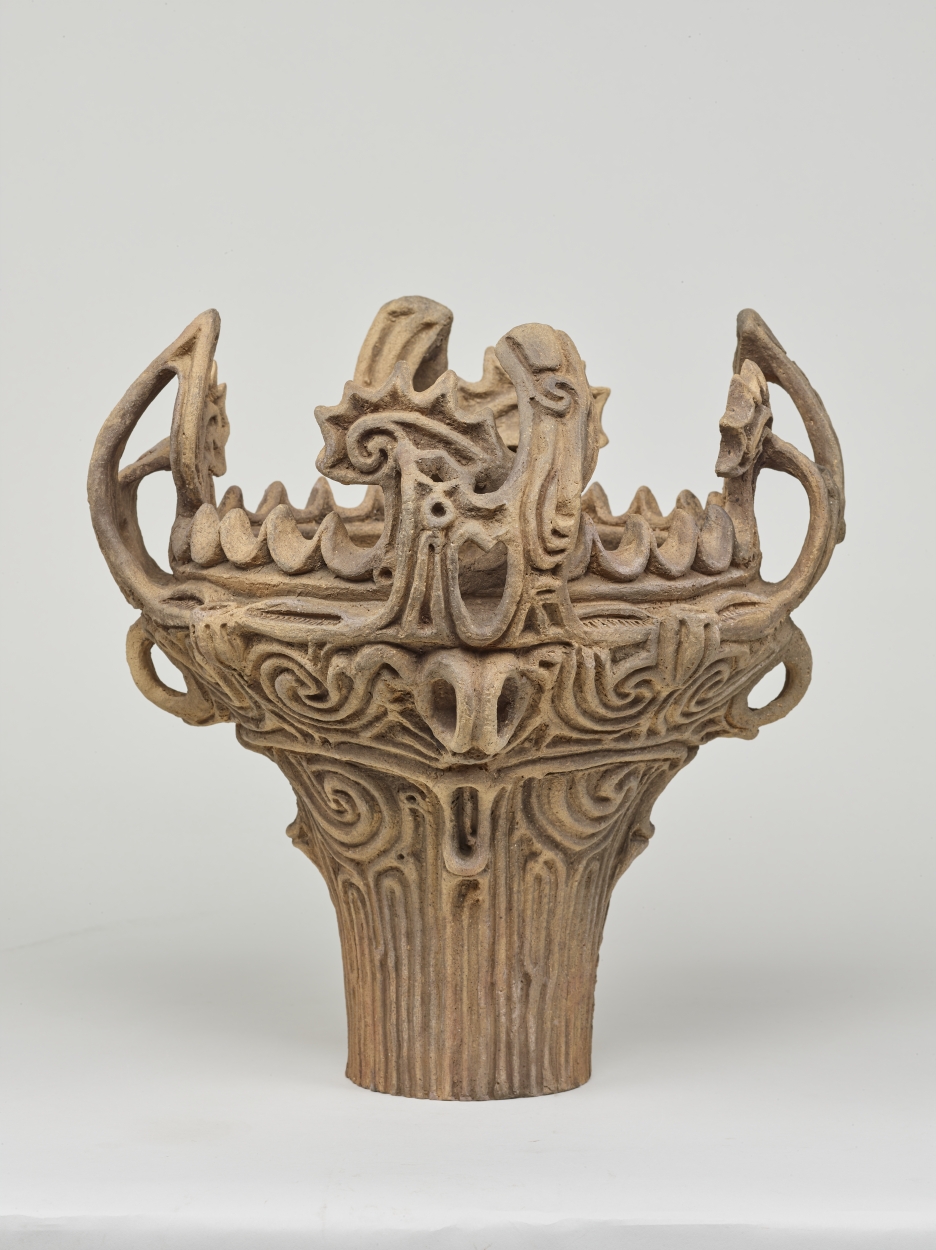複製品詳細
| 名称 | 火焰型土器 |
|---|---|
| ふりがな | かえんがたどき |
| 員数 | 1個 |
| 複製材質等 | 土製 |
| 複製制作年 | 2018 |
| 複製法量 | 【総寸】高37.0 口径28.4 胴径20 底径11.6【重量】5,241g |
| 複製制作 | 株式会社トリアド工房 |
原品詳細
| 作者出土地等 | 伝新潟県長岡市馬高出土 |
|---|---|
| 原品所蔵者 | 東京国立博物館 |
| 原品時代・世紀 | 縄文時代(中期)・前3000~前2000年 |
| 原品機関管理番号 | J-39036 |
作品解説
複雑に発達した把手(とって)が、燃え盛る焔【ほのお】のようにみえることからこの名がついた。過度ともいえる立体的で躍動的な装飾が、本来煮炊きの器である深鉢の形にとらわれることなく全体を覆いつくす。縄文時代中期の人びとの造形力の豊かさがここにある。 ―ColBase解説より





